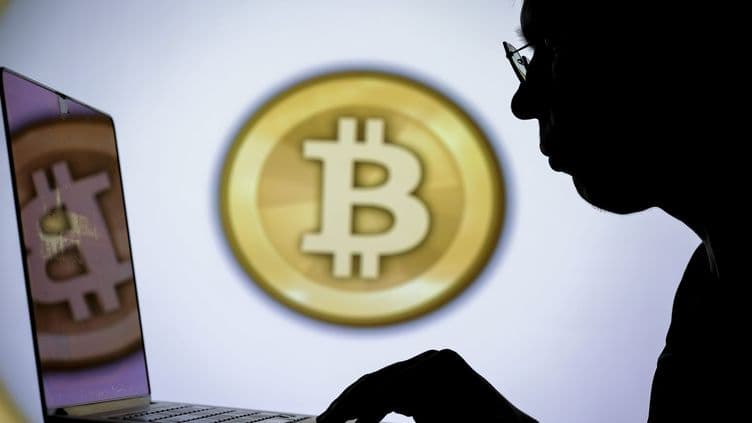
Tuesday March 5, bitcoin exceeded $69,000, a new historic peak for the queen of cryptocurrencies. Increasingly popular, the asset is surrounded by an aura of mystery.
Bitcoin, which surpassed its all-time high of more than $69,000 on Tuesday, is the most famous of cryptocurrencies, but it is shrouded in mystery and its reputation remains murky. More than fifteen years after its invention, the authorship of bitcoin remains controversial.
The principles of this virtual currency were revealed on October 31, 2008 in the “White Paper”, a nine-page document published under the signature of Satoshi Nakamoto. He theorizes that “making online payments directly from one third party to another would avoid going through a financial institution.” And to free ourselves from central banks, traditionally the only ones authorized to create money.
Who was Satoshi? Is this a real name or a pseudonym for one or more individuals? Various hypotheses have been put forward over the years but the mystery remains unsolved. Craig Wright, an Australian computer scientist and entrepreneur who has claimed since 2016 to be the inventor of bitcoin, is still on trial in London to determine whether or not he is the author of the “White Paper”.
Repeated scandals
Since its creation, bitcoin has regularly been accused of laundering criminal money or being used for extortion, particularly when it is used to pay ransoms for ransomware attacks that lock their victims’ computers.
This adds to the reputation for volatility of the cryptocurrency sector, shaken in recent years by the fall of several star entrepreneurs and high-profile bankruptcies. Changpeng Zhao, who was head of the world’s largest cryptocurrency platform, Binance, has left his position and pleaded guilty to violating anti-money laundering laws in the United States. Its biggest rival, FTX, went bankrupt and its founder Sam Bankman-Fried was convicted of several charges, including fraud, criminal conspiracy and money laundering.
Two experts from the European Central Bank (ECB) still estimated, in a blog post last month, that bitcoin “is still little used for legitimate transfers”. “The fair value of bitcoin is zero,” they insist, also citing the risks of price manipulation.
Respectability Efforts
If many investors in bitcoin are for speculative purposes, the cryptocurrency has received tokens of respectability in recent years, but with sometimes limited success. The American financial regulator approved at the beginning of January a new type of investment (the bitcoin spot ETF), indexed to bitcoin, which theoretically allows a wider public to invest indirectly in cryptocurrency, without having to hold it directly. This decision largely contributed to the surge in prices that led to Tuesday’s new record.
In September 2021, El Salvador was the first country in the world to adopt it as one of its legal currencies. But cryptocurrency has not convinced the population: according to a survey by the University of Central America (UCA), 88% of Salvadorans did not use it in their transactions in 2023.
Some merchants have also announced that they accept it as a means of payment, like billionaire Elon Musk who declared in 2021 that it was possible to buy Tesla cars with bitcoins – before turning around, arguing that its production was too polluting, then to say that Tesla would accept it when it was less polluting.
A particular operation
Bitcoin is based on blockchain technology, a virtual ledger that allows information to be stored and exchanged in a secure, reliable and unmodifiable manner. Each transaction is recorded in real time, in a tamper-proof register. Bitcoin is created – or “mined” – as a reward when powerful, and therefore energy-intensive, computers solve complex problems. “Miners” are those who contribute to the creation of blockchains by validating transactions.
To prevent an uncontrolled explosion, Satoshi Nakamoto limited the maximum number of bitcoin units that can exist in the world to 21 million (a level that is expected to be reached around 2140). And every four years, the reward for bitcoin “miners” is halved. The next halving is scheduled for April, and will slow the speed at which new bitcoins enter the market, reducing their potential availability and increasing their value, according to the well-known economic principle: what is scarce is expensive.
Source: https://www.bfmtv.com/crypto/bitcoin/mystere-et-speculation-le-bitcoin-la-cryptomonnaie-objet-de-tous-les-fantasmes_AD-202403060577.html


